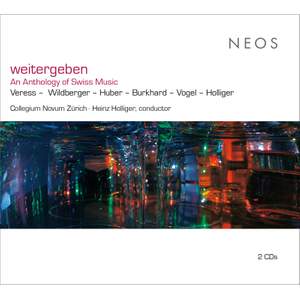Teaching is one of the most common ways of passing on knowledge and experience. At first, there is nothing extraordinary about this. However, precisely how this passing on takes place is a somewhat more complicated matter and requires a good deal of insider knowledge. But to retrospectively attempt to analyse these difficult-to-comprehend processes from the outside is something that is probably bordering on the impossible, yet is going to be attempted here nevertheless.
This edition is devoted to teacher-pupil relationships. Willy Burkhard was not only Klaus Huber's godfather, but also taught him composition in the early 1950s. At a young age, Wladimir Vogel had a similar political outlook to Jacques Wildberger and was later his teacher between 1948 and 1952. And Heinz Holliger is unable to give a short answer to the question of what he owes to Sandor Veress, with whom he studied from 1956 to 1959: "What I certainly learned from Veress ... I can't play chess, but this resembles how we tried things out. Some of it was crazy stuff, harmonically and contrapuntally, and he was interested in everything, like a game. For example, I learned that there is never such a thing as filler parts in music and that each part could be a solo part in its own right. In addition, his personality was formative for me; he was completely lacking in vanity and revealed little of himself and his own compositions in his lessons."
Founded in 1993, the Collegium Novum Zurich (CNZ) has become an integral part of the Swiss cultural scene. Throughout the decades, driven by a curiosity about contemporary music, the ensemble has never lost its importance and communicates contemporary music to a broad audience. The main focus of the 25-member ensemble has always been on creation, musical exchange and collaboration with composers.



